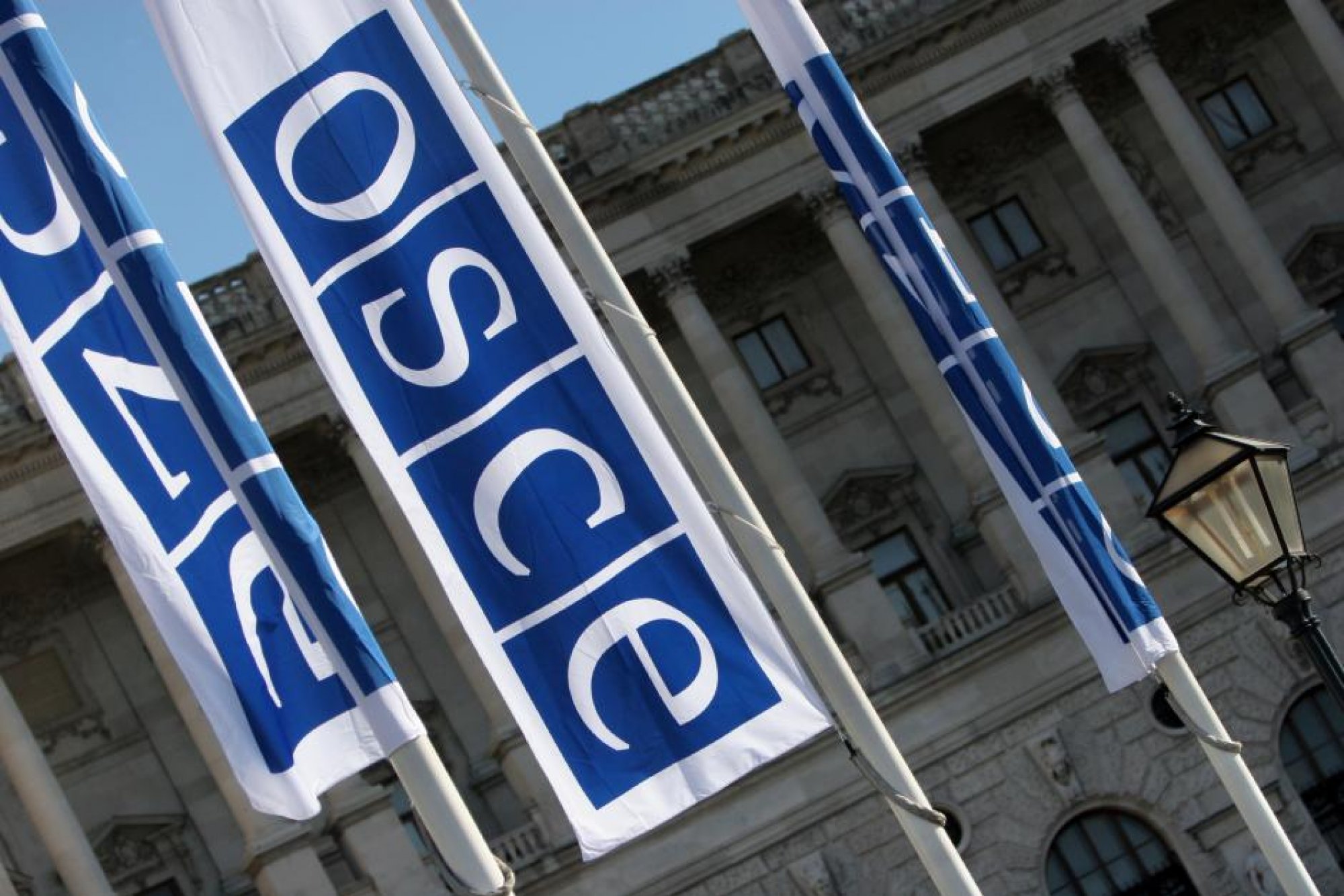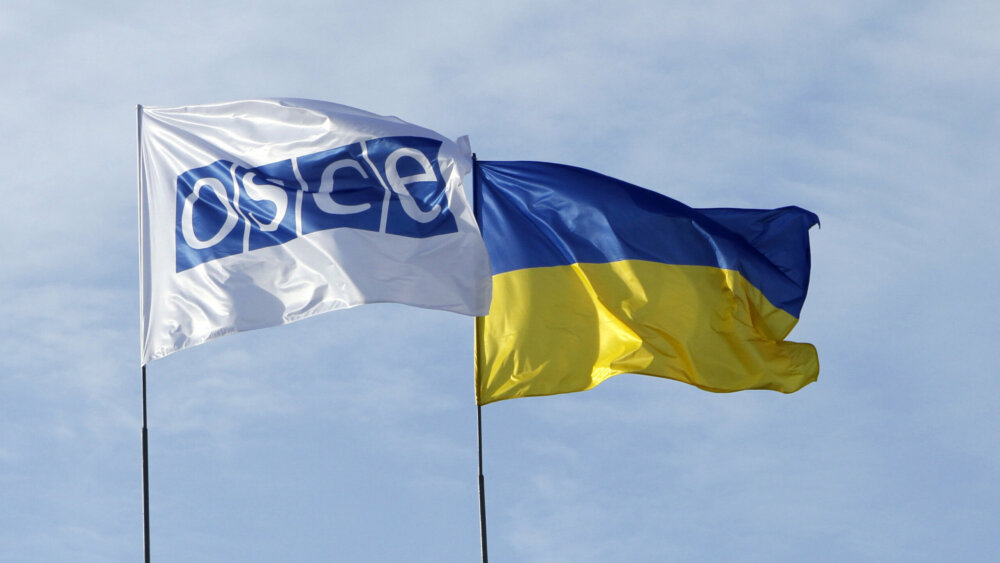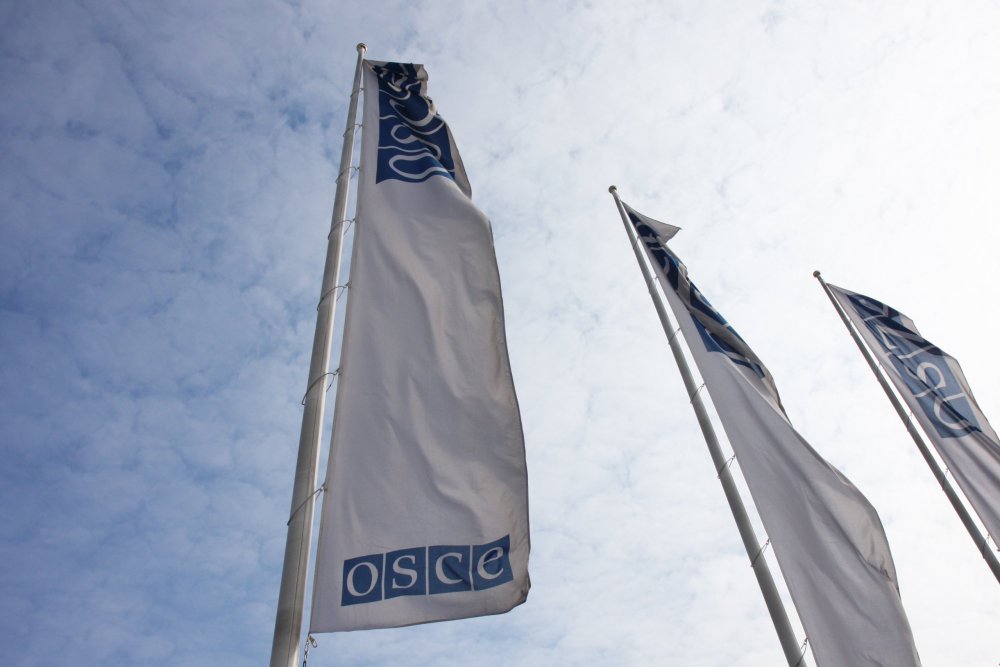OSCE/Mikhail Evstafiev

Russia’s war against Ukraine and the OSCE Mediterranean Dialogue
Introduction
Russia’s war of aggression against Ukraine, which plays out entirely in the OSCE area has severe repercussion for the MENA (Middle East and North Africa) region, especially the countries of North Africa. This essay investigates the relevance of the OSCE, especially of the Mediterranean dialogue of the organization, in this context. The paper will attempt to provide a number of observations, while recognizing that some aspects may be speculative and subject to change.
OSCE’s Mediterranean dialogue
The OSCE maintains special relations with six MENA countries as Mediterranean Partners for Co-operation: Algeria, Egypt, Israel, Jordan, Morocco and Tunisia. This partnership emerged from the Helsinki Final Act agreed upon in 1975, which asserts that security in Europe is closely linked with security in the Mediterranean area as a whole. Although numerous subsequent CSCE/OSCE documents as well as seminars and meetings have addressed the Mediterranean dimension of security, the substance of that relationship has been emerging only step-by-step.
The Partnership is mostly based on providing some access (in a manner similar to observers) to regular political deliberations of the organization, high-level contacts and exchanges, some operational aspects (i.e. the ability to contribute to OSCE activities) and specialized seminars and projects. Projects take place mostly within the OSCE area. Since Partner states do not sign up to nor are bound by the OSCE acquis of documents and decisions, participating States chose to encourage them to consider some aspects of the OSCE’s commitments. The formulation that was developed in 2003 called for voluntary implementation.
Impact of the war on MENA countries
Even prior to the war, the MENA region has been experiencing a number of economic, social, political and security challenges, which however have not affected all states in the region in the same way. Russia’s war against Ukraine is not expected to have a direct spill-over effect on North African countries. However, there are numerous dynamics that have the potential to exacerbate social, economic and political tensions as well as geopolitical concerns. There is also some potential for positive impact, especially for oil producing states, and potentially for those that can provide alternative energy sources such as solar energy, as European states are scrambling to address their dependency on Russian oil and gas.
Dynamics that have the potential to exacerbate social and economic concerns
MENA countries have significant economic ties with both Russia and Ukraine, which supply commodities such as food (grains, especially wheat and sunflower oil), hydrocarbon products and fertilizer. High global prices and global shortages, especially of wheat, have a significant impact on a number of countries, with Egypt and Tunisia among the most vulnerable. The possibility of severe food insecurity in the MENA region cannot be excluded. Observers see potential for unrest and some even mention the possibility of a new Arab Spring as a result.
Additional potential impact of the war on the region relates to the availability of foreign direct investment, due to risk aversion and reversal of diversification processes on the part of investors. Tourism in the region, already affected by the Covid-19 pandemic, may further suffer. The Middle East Institute warns that the stretched system may fail countries in the MENA region that require humanitarian aid, reconstruction, and development funds. The situation may also have an impact on attention and funds made available for climate action, with the Mediterranean region being among the most affected by climate change globally. An increase of emigration may be expected from the region as opportunities dwindle, leading to a possible brain drain.
Of course, the impact of the war on the region is uneven, as oil-producing states (Algeria, Libya) after some challenging years for the oil industry, now benefit from higher energy prices and political attention from Western European countries eager to replace Russian energy sources. For some or all of MENA countries that do not produce oil and gas, the impact on the economies is, however, palpable and immediate.
Dynamics that have the potential of exacerbating geopolitical concerns
States in the MENA region have not had to choose between Russia and the US since the fall of the Soviet Union. “Russia’s attack on Ukraine has put governments across the region in a strategic bind,” as Tobias Borck and Jack Senogles write. Indeed, Russia’s war against Ukraine can be expected to result in pressure to commit to one side – Russia or ‘the West’, which in turn will have a variety of consequences in the region.
One aspect that can be glimpsed from a variety of Arab sources is the perception of double standards displayed by Western countries, particularly in terms of the West’s demands that Russian behaviour towards Ukraine should be condemned, the West’s different response to armed conflicts in different parts of the world, and its responses to migration waves which differ depending on the origin of the migrants and refugees.
A further concern relates to the difficulties that the war created for international cooperation endeavours, in the context of the UN Security Council and other settings, needed for addressing conflicts in the MENA region. Divisions in the UNSC could impact a variety of activities such as mandates of UN peacekeeping, but also for example EU operations such as Operation EUNAVFOR MED IRINI, the EU’s operation to implement the UN arms embargo on Libya.
But the circumstances of the war and its impact on organizations such as the OSCE also may have an impact on thinking in the MENA region of the applicability of the concept of cooperative security, the value of regional organizations, and the concept of multilateralism, although these aspects are much more difficult to quantify.
Dynamics that have the potential of opening new possibilities (economic, social, political, geopolitical)
Russia’s war against Ukraine also provided for some potential opportunities for some MENA countries. The need to diversify energy sources away from Russia may boost those states that are able to provide additional oil and gas supplies. In fact, this may lead to greater engagement of the US and Western Europe in conflict resolution and post-conflict rehabilitation efforts, for example in Libya (not one of the OSCE Mediterranean Partners so far), but also in the Eastern Mediterranean.
In the medium to longer-term, it may also imply additional attention and resources being made available for the development of alternative sources of energy, such as solar energy. This would thus be an opportunity, especially for non-oil and gas producing states in the region.
OSCE’s Mediterranean Dialogue and impact of the war on North African countries
The OSCE will not be among the main multilateral frameworks called upon to respond to this situation in the MENA region. The IMF and the World Bank, the G7, the European Union, the African Union and possibly others will be at the forefront of engaging in order to prevent and respond to the concerns. In a situation where the interaction of the OSCE participating States is marked by a sharp deterioration of relations and ‘no business as usual’ attitudes, and indeed fears for the future of the organization, the Mediterranean Dialogue is not high on the list of priorities when it comes to the MENA region.
While the current situation would call for a reform that would address the shortcomings of the Dialogue – such as issues related to funding, the difficulties related to providing any sort of assistance including training in the Partner States as well as the fact that some key countries such as Libya are not part of the dialogue of the Mediterranean Dialogue – change appear unlikely due to the breakdown of cooperation within the OSCE.
However, some arguments point to the need for the OSCE to engage. As in the past, Mediterranean Partners may have a strong interest in observing up close any deliberations and the context of the interaction on the war but also on the future of the European security architecture. They may have an interest in how the arms control agenda develops. They may wish to engage on aspects of the economic and environmental agenda, such as connectivity, as well as issues related to migration and trafficking and related matters.
In addition, the OSCE could highlight and draw attention to the impact of the war which emerges entirely from within the OSCE area but affects other regions. In its current format, the Mediterranean Dialogue can function as a forum for highlighting the deep impact and potential consequences not only for North Africa but also for participating States, especially those in the Mediterranean region.
*Dr. Monika Wohlfeld is Holder of the German Chair for Peace Studies and Conflict Prevention, Mediterranean Academy of Diplomatic Studies, Malta.



Comments
* Your email address will not be published